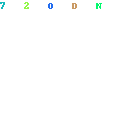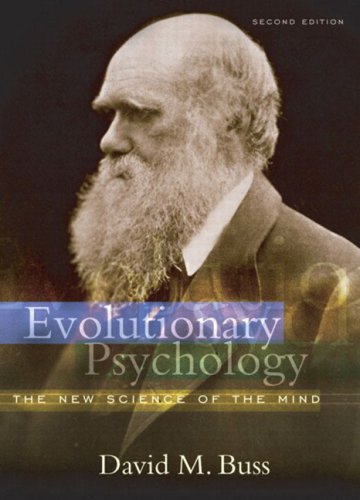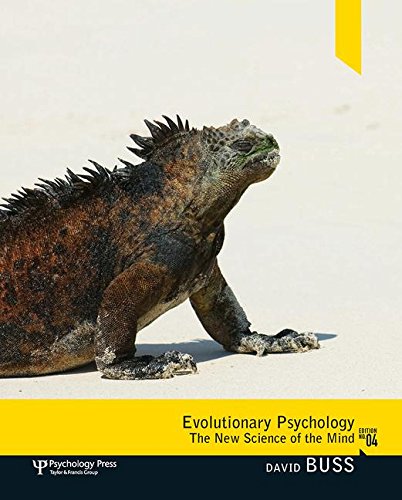Finding the best evolutionary psychology suitable for your needs isnt easy. With hundreds of choices can distract you. Knowing whats bad and whats good can be something of a minefield. In this article, weve done the hard work for you.
Reviews
1. Evolutionary Psychology: An Introduction
Feature
Evolutionary Psychology An IntroductionDescription
Written for undergraduate psychology students, and assuming little knowledge of evolutionary science, the third edition of this classic textbook provides an essential introduction to evolutionary psychology. Fully updated with the latest research and new learning features, it provides a thought-provoking overview of evolution and illuminates the evolutionary foundation of many of the broader topics taught in psychology departments. The text retains its balanced and critical evaluation of hypotheses and full coverage of the fundamental topics required for undergraduates. This new edition includes more material on the social and reproductive behaviour of non-human primates, morality, cognition, development and culture as well as new photos, illustrations, text boxes and thought questions to support student learning. Some 280 online multiple choice questions complete the student questioning package. This new material complements the classic features of this text, which include suggestions for further reading, chapter summaries, a glossary, and two-colour figures throughout.2. Evolutionary Psychology: A Beginner's Guide (Beginner's Guides)
Feature
Evolutionary Psychology A Beginner s Guide Human Behaviour Evolution and the MindDescription
3. Evolutionary Psychology: The New Science of the Mind
Feature
Evolutionary Psychology The New Science of the MindDescription
This book examines human psychology and behavior through the lens of modern evolutionary psychology. Evolutionary Psychology: The Ne w Science of the Mind, 5/e provides students with the conceptual tools of evolutionary psychology, and applies them to empirical research on the human mind. Content topics are logically arrayed, starting with challenges of survival, mating, parenting, and kinship; and then progressing to challenges of group living, including cooperation, aggression, sexual conflict, and status, prestige, and social hierarchies. Students gain a deep understanding of applying evolutionary psychology to their own lives and all the people they interact with.4. Evolutionary Psychology: The New Science of the Mind (2nd Edition)
Description
Written by well-known author and researcher, David Buss, this is the premier and original text for the burgeoning field of Evolutionary Psychology. Thoroughly revised, this text provides a comprehensive overview of the field in a book that is enormously successful. Engaging Writing style. KEY TOPICS: Survival, mating, relationships. MARKET: Evolutionary Psychology.5. Evolutionary Psychology: The New Science of the Mind
Description
The third edition of Evolutionary Psychology continues to be the premier text for the burgeoning field of evolutionary psychology, and this major update contains nearly 400 new references.6. Evolutionary Psychology: The New Science of the Mind (4th Edition)
Feature
schooltextbook
david buss
evolutionary psychology
Description
For courses in Evolutionary Psychology .
David Buss, one of the foremost researchers in the field, has thoroughly revised his already successful text with nearly 400 new referencesto provide an even more comprehensive overview of this dynamic field. Using cutting-edge research and an engaging writing style, theFourth Edition of Evolutionary Psychology ensures that your students will master the material presented.
7. The Evolutionary Psychology Behind Politics: How Conservatism and Liberalism Evolved Within Humans, Third Edition
Feature
The Evolutionary Psychology Behind PoliticsDescription
Please note that when Amazon says "outof stock," or "available in 2-6 weeks," Amazon drop ships orders from the publisher Ingram within 1-2 days and it will arrive normally.
Why do people adopt different political ideologies? How can seemingly equal intellects, presented with the same facts and circumstances disagree so vehemently over how society should be structured? What psychological undercurrents guide people to adopt Conservative or Liberal political beliefs, and where did they come from?
The answer lies in a well known concept in biology termed r/K Selection Theory, and this third edition is the most complete examination of this ground-breaking idea to date.
r/K Theory examines how all populations tend to adopt one of two psychologies as a means of adapting their behavior to the presence or absence of environmental resources. The two strategies, termed r and K, each correlate perfectly with the psychologies underlying Liberalism and Conservatism.
One strategy, named the r-strategy, imbues those who are programmed with it to be averse to all peer on peer competition, embrace promiscuity, embrace single parenting, and support early onset sexual activity in youth. Obviously, this mirrors the Liberal philosophy's aversion to individual Darwinian competitions such as capitalism and self defense with firearms, as well as group competitions such as war. Likewise, Liberalism is tolerant of promiscuity, tolerant of single parenting, and more prone to support early sex education for children and the sexualization of cultural influences. Designed to exploit a plethora of resources, one will often find this r-type strategy embodied within prey species, where predation has lowered the population's numbers, and thereby increased the resources available to it's individuals.
The other strategy, termed the K-strategy, imbues those who pursue it with a fierce competitiveness, as well as tendencies towards abstinence until monogamy, two-parent parenting, and delaying sexual activity until later in life. Obviously, this mirrors Conservatism's acceptance of all sorts of competitive social schemes, from free market capitalism, to war, to individuals owning and carrying private weapons for self defense. Conservatives also tend to favor abstinence until monogamy, two parent parenting with an emphasis upon "family values," and children being shielded from any sexualized stimuli until later in life. This strategy is found most commonly in species which lack predation, and whose population's have grown to the point individuals must compete with each other for the limited environmental resources that they are rapidly running out of.
Meticulously substantiated with the latest research in fields from neurobiology to human behavioral ecology, this work offers an unprecedented view into not just what governs our political battles, but why these battles have arisen within our species in the first place. From showing how these two strategies adapt in other more complex species in nature, to examining the role of a migrating history in the evolution of more complex leftist political ideals, to examining what genetic and neurostructural mechanisms may produce these divergences between individuals, to examining how the environment may alter the expression of these ideals, to showing what this theory indicates our future may hold, this work is the most thorough analysis to date of just why we have two political ideologies, why they will never agree, and why we will tend to become even more partisan in the future.
8. The Moral Animal: Why We Are, the Way We Are: The New Science of Evolutionary Psychology
Feature
The Moral Animal Why We Are the Way We Are The New Science of Evolutionary PsychologyDescription
Are men literally born to cheat? Does monogamy actually serve women's interests? These are among the questions that have made The Moral Animal one of the most provocative science books in recent years. Wright unveils the genetic strategies behind everything from our sexual preferences to our office politics--as well as their implications for our moral codes and public policies. Illustrations.9. The Blank Slate: The Modern Denial of Human Nature
Feature
The Blank Slate The Modern Denial of Human NatureDescription
A brilliant inquiry into the origins of human nature from the author of The Better Angels of Our Nature and the forthcoming Enlightenment Now"Sweeping, erudite, sharply argued, and fun to read..also highly persuasive." -Time
Now updated with a new afterword
One of the world's leading experts on language and the mind explores the idea of human nature and its moral, emotional, and political colorings. With characteristic wit, lucidity, and insight, Pinker argues that the dogma that the mind has no innate traits-a doctrine held by many intellectuals during the past century-denies our common humanity and our individual preferences, replaces objective analyses of social problems with feel-good slogans, and distorts our understanding of politics, violence, parenting, and the arts. Injecting calm and rationality into debates that are notorious for ax-grinding and mud-slinging, Pinker shows the importance of an honest acknowledgment of human nature based on science and common sense.
10. Introducing Evolutionary Psychology: A Graphic Guide
Feature
Totem BooksDescription
Drawing on the insights of evolutionary biology and cognitive psychology, as well as data from anthropology, primatology, and archaeology, evolutionary psychologists are beginning to piece together the first truly scientific account of human nature. Introducing Evolutionary Psychology is the perfect introduction to this exciting new field.
11. Evolutionary Psychology (2nd Edition)
Description
The second edition of Evolutionary Psychology is the only book on the market that shows the relevance of evolutionary thinking to the entire range of psychological phenomena, and it does so at a level appropriate for readers new to the field. Each chapter deals with a particular topic by illustrating how an evolutionary approach illuminates behavior as a response to problems faced by humans in our evolutionary past. The authorsrepresenting the disciplines of both psychology and anthropologypresent their material traditionally: they first provide the foundation for understanding the fundamentals of modern evolutionary theory; then systematically apply this theory to learning, cognition, perception, emotion, development, pathology, and more. For any reader interested in a richer understanding of human behavior and the psychological mechanisms that underlie it.











